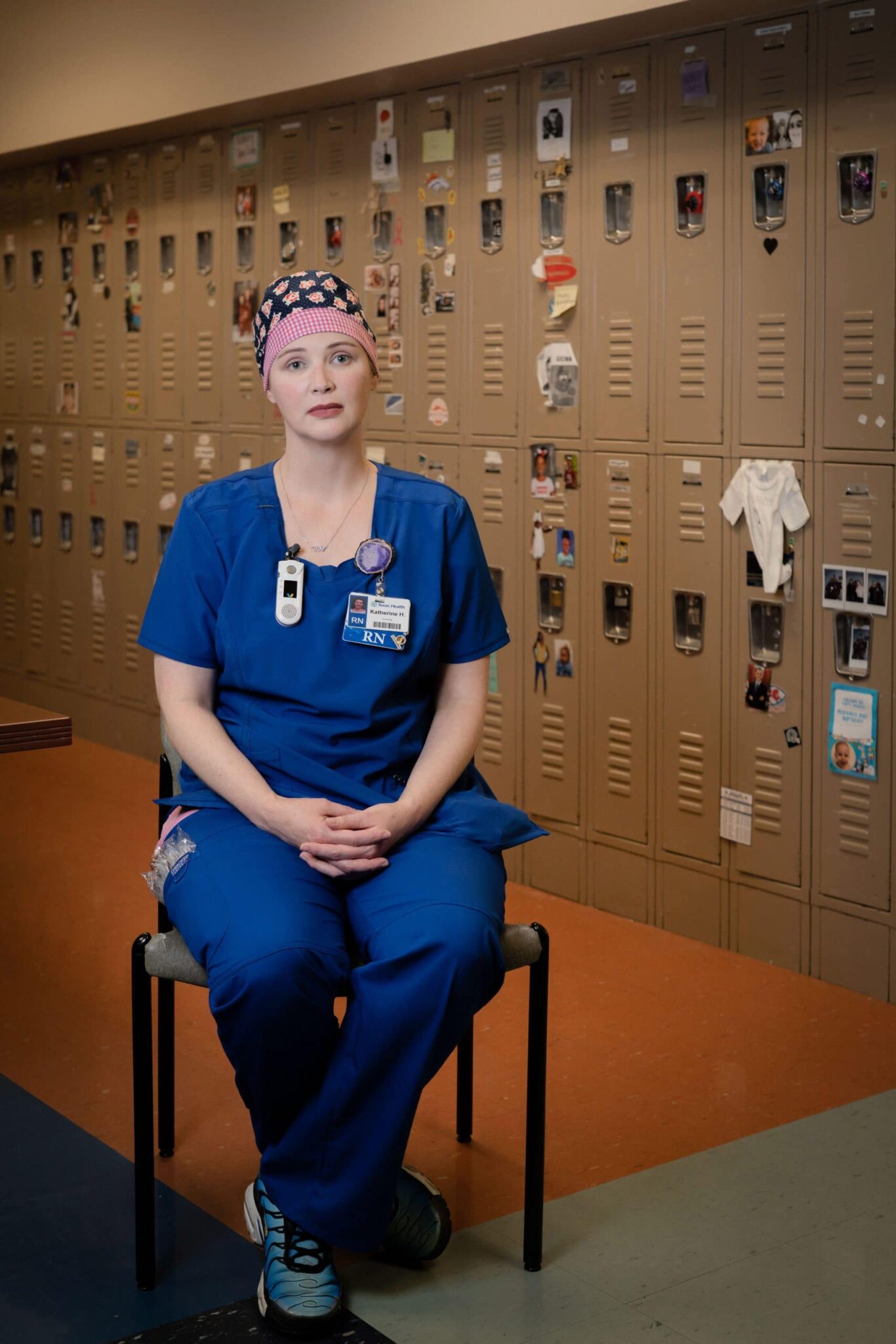Katherine Adkinson
ER nurse
Texas Health Southwest Fort Worth
Katherine has been with Texas Health for 13 years.
“My mother died of AIDS. I was a teenager when I found out and I’ve wanted to be a nurse ever since. My grandmother was a neonatal nurse, and she pushed me in that direction, too.”
Did you choose working in ER?
I didn’t pick ER, ER picked me. If someone would have asked me in nursing school if you want ER, I would have been like, “You’re crazy.” And I did an eight-hour shift through nursing school and then in three hours I was hooked and there was no going back.
In ER, you have to know everything. It’s something it’s always something different.
The novelty then?
Yeah, and then just the excitement, the adrenaline rush. After you get older, that starts to wear on you but you have to learn new things every day. It’s always chaotic. It’s a beautiful mess.
How’s the morale?
We’ve been actually really fortunate in that like with Parkland, they put a whole ward, a whole unit for it. And even though we’ve been seeing a lot of cases it’s kind of, we get them up to the floor and everything’s great.
But the hard days are when a nurse has all of her patients are COVID, no rule out. And so, they’re constantly having to put on their stuff and take it off. And we’re literally peeling it off of our skin cause we’re sweating and those are the hard days.
But as far as morale is concerned, I think we’re all just really supportive of each other. Especially in an ER ICU setting, you kind of have to roll with the punches and support each other. And the unit doesn’t really function unless you have that mindset. So for the most part, morale is really good because of that mindset.
Is there anything you wish the general public would know about COVID-19?
What I want people to know is to not listen to the naysayers, but also to be proactive in doing your own research. Like any scary virus, we need to respect it and its boundaries and its limitations, but also its ability to kill. I don’t know, I mean maybe you can find another word for it, but it’s a deadly virus.
People want to say it’s a hoax or it’s not that big of a deal. All they need to do is come in here and it’ll change their mind in a heartbeat.
I had a patient two weeks ago that fell. He was just in here for a laceration above his forehead. But because he had some medical issues that predisposed him to being a risk, we went ahead and did a test and he was positive. So, you could be walking around with this virus and not even know it. I mean he came in for something completely unrelated to COVID-19 and he turned out positive because we had to admit him to the hospital.
Have you had like a high, low experience or moment?
The low is being treated like you have a plague by your friends and family, even though we’re probably being more careful than the average person. But I get it. The highs are the support of my coworkers and my family and my friends as well.
But clinically speaking, the biggest stuff for me was telling a patient’s wife that she couldn’t come back to the room and her husband had stage four cancer. We ended up admitting him. And he wasn’t positive for COVID but I broke protocol and I hugged her and just let her cry there for a minute. And that was the beginning of all the COVID stuff. I’ve seen families wail and scream when their loved ones passed. Those are the lows.
– Reporting and photography by Amber Shumake






